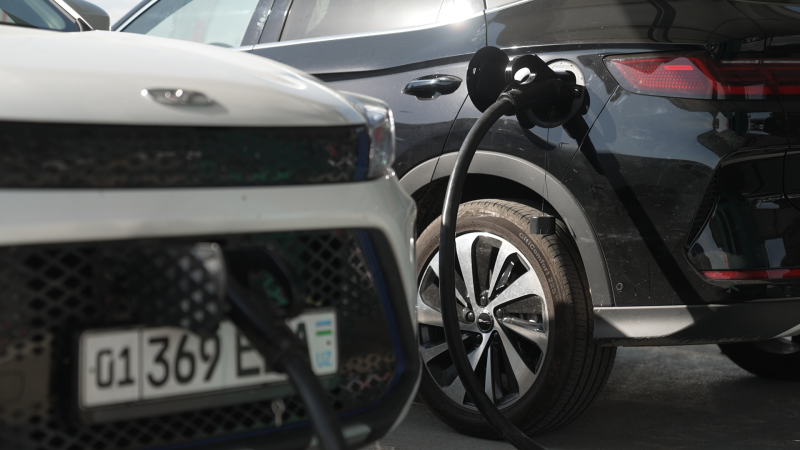Uzbekistan, the most populous country in Central Asia, has historically relied heavily on burning fossil fuels for electricity. However, the country is now working towards reducing its carbon footprint. One of the strategies being implemented is the adoption of electric vehicles (EVs). Five years ago, Uzbekistan removed excise and customs duties on electric and hybrid vehicles, resulting in a significant decrease in the cost of purchasing an EV. As a result, sales of EVs in the country have increased tenfold over the past three years.
Lower prices have been a major incentive for consumers like Tashkent-based project manager Timur Chutbaev to switch to EVs. Charging an electric car is also cheaper in Uzbekistan due to heavily government-subsidized electricity costs. In fact, Chutbaev mentioned that charging his car at home only costs him $5 for 500 kilometers of driving. Despite a total of 1.7 million car sales last year, only 25,000 were electric cars, with more than 90% of them imported from China.
Chinese EV manufacturer BYD has started manufacturing plug-in hybrids in Uzbekistan, marking a significant milestone as they were the first passenger cars made outside of China by the company. Local EV dealer Megawatt Motors, which exclusively offers BYD vehicles, faced challenges in selling EVs due to insufficient charging infrastructure. However, the company built 10 charging stations in Tashkent and other regions and provided free electricity initially to promote EVs.
The popularity and accessibility of EVs are gradually increasing in Uzbekistan, with hundreds of charging stations now available across the country. However, simply increasing the number of EVs on the road will not be sufficient for Uzbekistan to meet its emissions reduction target by 2030. The country will need to clean up its electricity grid, which currently heavily relies on natural gas. Investments in hydropower and solar technologies are on the rise, with renewable energy contributing 20% to the grid.
To ensure the growth of EVs has a significant impact, Uzbekistan needs to focus on improving the efficiency of its production and reducing emissions. The World Bank’s lead economist for Central Asia, David Knight, emphasizes the importance of these efforts given the country’s rapid growth. While current electricity costs are heavily subsidized, they may rise in the future to fund the energy sector reforms. Despite potential cost implications, the demand for EVs remains strong, prompting companies like Megawatt Motors to invest in training more salespeople to cater to the growing market.
Megawatt Motors predicts that it may eventually sell electric cars manufactured by homegrown brands in Uzbekistan, as the country has been developing automobile production since 1995. With the recent leap in the EV market, spurred by lower prices and improved infrastructure, there is optimism about a faster transition to producing electric vehicles domestically. As Uzbekistan continues to develop its renewable energy sources and implement further reforms, it is on track to achieve its emissions reduction goals and contribute to a greener future.













